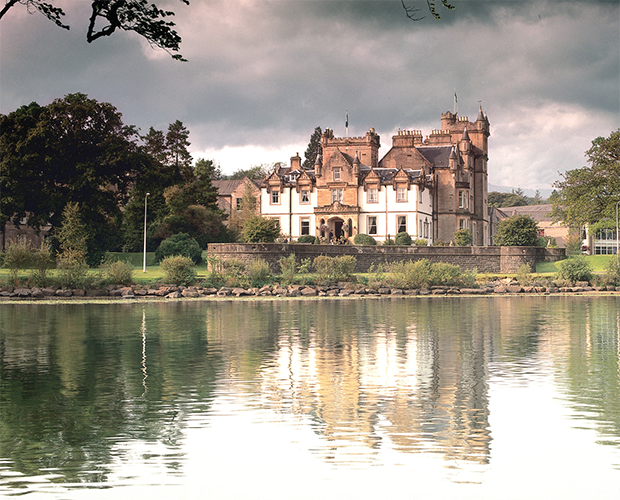
De Vere Group
Gracious hospitality
Reinvestment and renovation is fundamental to the development of the De Vere Group
The acquisition of the De Vere Group in 2006 by the Alternative Hotel Group (AHG) has seen the raising in profile and mutual development of both companies, specifically allowing the De Vere Group to reinvest in its range of hotels, as well as develop its array of services and restaurants. With a range of quality hotels and restaurants across the UK, De Vere is aiming to renovate some of its properties, as well as promote its new range of hotels, and food and beverage management.
The De Vere Group is divided into three main sectors, all of which have received redevelopment funding in the light of AHG’s takeover. The Deluxe hotel option offers customers the highest in quality and individuality; Heritage offers style and personal choice; and Venues creates relaxing environments for business meetings. AHG also purchased Searcy Catering, expanding its interest in the production of quality food, a factor that remains at the forefront of De Vere’s operations.
Duncan Ackery, director of food and beverages for the De Vere Group, outlines his position at the company, and the recent developments: “I joined the De Vere Group in January 2007, and my role is food and beverage director for AHG, which includes all the De Vere properties – Venues, Deluxe, Heritage and Village Hotels. This means I look after everything across the supply of food and beverages. The scope of my role includes food purchasing policies and menu development across the businesses. The company now prides itself on producing well-sourced, freshly cooked food for its guests. The food is bold, bright, innovative, and fun, and the guests have responded strongly, which is positive news.”
Commenting on the more specific developments seen in each of De Vere’s sectors, Duncan continues: “De Vere Venues, which focuses on the conference side of business, is the biggest training venture in the UK. The company is focusing on the development of its range of steam, bake, and grill restaurants, which is going well in its venues in Sunningdale and Horsley Park. The interiors of the restaurant are akin to a West End restaurant; they look fantastic. When business executives enter these steam, bake, and grills after being battered by PowerPoint demonstrations, there is a lively, fun atmosphere that allows them to unwind. The company is expanding this range of restaurants across its entire Venue business section. The emphasis is on simple, fresh, seasonal food.
“De Vere Deluxe is focusing on Cameron House, the lead property in this division, with the company investing £37 million. Every dining room in Cameron House has received highly positive reviews from the Glasgow Herald. De Vere has also just built the Carrick, which is a new golf club that has been incredibly well received. It is a beautiful looking building, and has recently installed a new spa feature.”
Expansion and development is not only confined to the renovation of the Group’s properties, as De Vere has employed experienced chefs at a number of its hotels. Duncan explains: “On the staffing side, I have introduced chef-led food and beverage directors in every property. At Cameron House, the company employs Colin Bussey, a former executive chef at Gleneagles, as food and beverage director. Colin is doing a fantastic job, and is at the forefront of the chef-led food and beverage directors programme. At Slaley Hall, the company has installed Iain Jurgensen, who was previously the executive at St. Andrew’s Bay. At the Royal Bath in Bournemouth, the director is Paul Muddiman, who previously was executive chef of Simpson’s-in-the-Strand. De Vere has employed some top-hitting experts at its restaurants, and it is already having a positive impact.
“In regards to the food itself, the emphasis is very much on regional, British, fresh food and ingredients. This is the message across the full range of the company’s ventures; steadily progressing all the way up to De Vere’s high-end restaurants and hotels. The company is working to combine our purchasing layered arrangements, and focusing on local suppliers, and the community in which these hotels and restaurants are located, to add value to the operations. De Vere knows this is important to its customers; when they travel to Scotland, they want to eat Scottish produce, and likewise at other locations in the country.”
Quality produce is central to De Vere’s operating practices, as Duncan states: “At the moment, the company is sourcing ingredients from Britain primarily, as De Vere understands that when people visit its iconic hotels, they want to eat authentic, British food. The De Vere Group is supplying fresh, locally sourced produce throughout its hotels and restaurants for its customers and guests. I think that by
using quality produce, and preparing it using contemporary cooking methods – for instance, less deep-frying and saturated fats – De Vere is helping its guests maintain a healthy diet.”
The future looks strong, as Duncan confirms: “The key factors are the redevelopment of Cameron House: the launching of the spa facilities, the Carrick golf club, and the new range of top-end restaurants. These will be the main focus of the company for the future. Over the next three years, I think the business will develop into a great group of properties, as well as a well-known hotel brand. De Vere aims to constantly evolve to offer its guests and customers fresh and innovative ideas.”